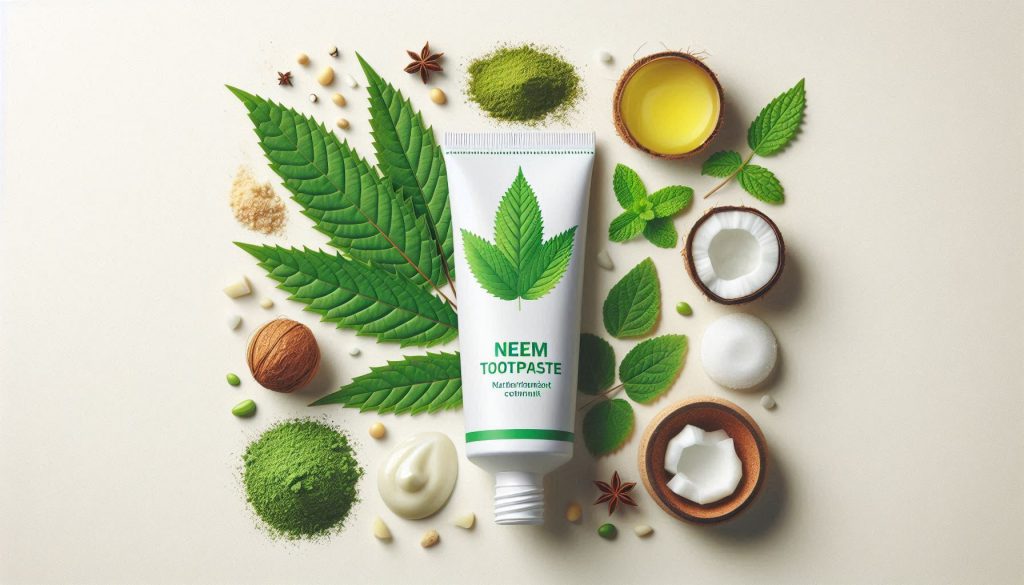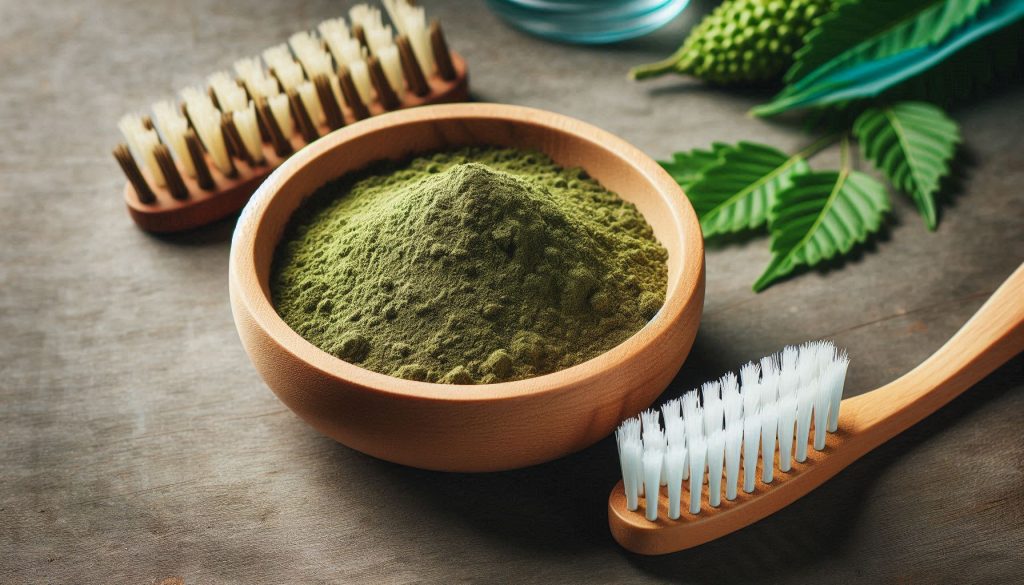Cavities, also known as dental caries, are among the most common dental issues, affecting people of all ages. Maintaining good oral hygiene is essential for overall health, and while traditional treatments like fluoride toothpaste and regular dental visits are crucial, many are now exploring natural alternatives to complement their oral care routines. Neem, a tree with a long history of medicinal use, is gaining attention for its potential benefits in maintaining dental health. This article explores how neem can be used to prevent cavities and enhance overall oral health.
Understanding Cavities
To understand how neem can help prevent cavities, it’s essential to first understand what cavities are and how they form. Cavities, or dental caries, are the result of tooth decay, which occurs when the enamel on teeth is eroded by acids produced by bacteria. These bacteria feed on sugars and carbohydrates from food, forming a sticky film known as plaque. If plaque is not removed through regular brushing and flossing, it can harden into tartar, leading to cavities.
Causes of Cavities
Cavities develop when bacteria in the mouth convert sugars and starches from food into acids. Over time, these acids dissolve the minerals in the tooth enamel, leading to the formation of tiny holes or cavities. Several factors can contribute to the development of cavities:

- Poor Oral Hygiene: Inadequate brushing and flossing allow plaque to build up, increasing the risk of cavities.
- Diet High in Sugars and Carbohydrates: Foods and drinks high in sugar and starches provide the bacteria in your mouth with the fuel they need to produce acid.
- Dry Mouth: A lack of saliva can lead to increased plaque buildup, as saliva helps wash away food particles and neutralize acids.
- Frequent Snacking: Regular snacking throughout the day can increase the amount of acid in the mouth, as bacteria have a constant supply of sugars and carbohydrates to consume.
- Receding Gums: When gums recede, they expose more of the tooth surface to plaque and bacteria, increasing the risk of cavities.
Symptoms of Cavities
Recognizing the signs of cavities early on is crucial for timely treatment. Common symptoms include:
- Tooth Sensitivity: Discomfort or pain when consuming hot, cold, or sweet foods and drinks.
- Visible Pits or Holes: Cavities often appear as small holes or pits in the teeth.
- Toothache: Pain that occurs spontaneously or when biting down.
- Dark Spots on Teeth: Discoloration, such as brown or black spots, can indicate the presence of cavities.
Neem: A Natural Remedy for Dental Health
Neem (Azadirachta indica), often referred to as the “village pharmacy,” has been used for centuries in traditional medicine due to its antibacterial, anti-inflammatory, and antioxidant properties. These qualities make neem a promising natural remedy for promoting dental health and preventing cavities.
Scientific Support for Neem’s Efficacy
Studies have shown that neem has significant antibacterial properties, which can help reduce the bacterial load in the mouth. This reduction in harmful bacteria can decrease the production of plaque and acids that lead to tooth decay. Additionally, neem’s anti-inflammatory properties can help soothe gum inflammation, which is often associated with poor oral hygiene and cavity formation.

Neem-Based Dental Health Treatments
Incorporating neem into your daily oral hygiene routine can be a natural and effective way to prevent cavities and improve overall dental health. Below are some neem-based treatments that can easily be integrated into your daily routine.
1. Using Neem Toothpaste for Cavity Prevention
Neem toothpaste is an easy and convenient way to incorporate neem into your oral care regimen. Neem toothpaste typically combines neem with other natural ingredients to provide comprehensive dental care.
How to Use Neem Toothpaste:
- Frequency: Brush your teeth twice a day with neem toothpaste, just as you would with regular toothpaste.
- Technique: Ensure you brush for at least two minutes each time to thoroughly clean all surfaces of your teeth.
Benefits of Neem Toothpaste:
- Antibacterial Properties: Neem helps reduce harmful bacteria in the mouth, which can lower the risk of cavities.
- Plaque Prevention: Regular use of neem toothpaste can help prevent plaque buildup, which is the precursor to cavities.
DIY Neem Toothpaste Recipe
Making your neem toothpaste at home is a simple process. Here’s a recipe you can try:
Ingredients:
- 2 tablespoons neem powder
- 2 tablespoons baking soda
- 1 tablespoon coconut oil
- 1 tablespoon peppermint powder (optional for flavor)
Instructions:

- In a bowl, mix the neem powder and baking soda.
- Add the coconut oil and mix until the mixture forms a paste.
- If you prefer a minty flavor, add the peppermint powder.
- Store the mixture in an airtight container.
2. Use of Neem Mouthwash in Oral Care
Neem mouthwash is another effective way to incorporate neem into your oral hygiene routine. It can help freshen breath, promote gum health, and reduce the number of harmful bacteria in the mouth.
How to Use Neem Mouthwash:
- Frequency: Swish neem mouthwash around your mouth for 30 to 60 seconds after brushing.
- Technique: Spit out the mouthwash and avoid rinsing with water immediately afterward to allow the neem to work.
Benefits of Neem Mouthwash:
- Antimicrobial Properties: Neem mouthwash can help control the bacteria responsible for cavities and plaque formation.
- Gum Health: The anti-inflammatory properties of neem can help reduce gum swelling and soothe irritated tissues.
DIY Neem Mouthwash Recipe
Making your neem mouthwash at home is easy and cost-effective. Here’s a simple recipe:
Ingredients:
- 1 cup water
- 1 teaspoon neem powder
- 1 teaspoon salt (optional, for extra antibacterial properties)
- A few drops of essential clove oil (optional, for flavor)
Instructions:

- Boil the water and let it cool to room temperature.
- Add the neem powder to the water and stir well.
- Mix in the salt, if using, and add a few drops of clove oil for flavor.
- Store the mixture in a clean bottle.
3. Chewing Neem Leaves for Dental Health
Chewing neem leaves is a traditional practice that can help maintain oral hygiene and prevent cavities. The natural antibacterial properties of neem leaves make them an effective way to reduce harmful bacteria in the mouth.
How to Use Neem Leaves:
- Frequency: Chew a few fresh neem leaves daily, ideally after meals.
- Technique: Chew the leaves thoroughly to release their beneficial compounds.
Benefits of Chewing Neem Leaves:
- Bacterial Reduction: Direct contact with the teeth and gums helps reduce the number of harmful bacteria.
- Natural Fluoride Source: Neem leaves contain natural fluoride, which can help strengthen tooth enamel.
Preparation of Neem Leaves:
- Selection: Use fresh, organic neem leaves.
- Preparation: Wash the leaves thoroughly before chewing.
4. Using Neem Powder for Dental Care
Neem powder is another versatile way to use neem for oral health. It can be applied directly to the teeth and gums or used in combination with other natural ingredients.
How to Use Neem Powder:
- Frequency: Apply neem powder to a damp toothbrush and brush as usual.
- Technique: Brush gently to ensure even coverage on all tooth surfaces.
Benefits of Neem Powder:
- Antibacterial Protection: Neem powder helps eliminate bacteria and thoroughly clean the teeth.
- Versatility: It can be combined with other natural products like baking soda or activated charcoal for additional benefits.
DIY Neem Powder Mixture
Here’s a simple recipe to make a neem powder mixture that can be used as a toothpaste alternative:
Ingredients:
- 2 tablespoons neem powder
- 1 tablespoon baking soda
- 1 tablespoon activated charcoal (optional, for added whitening)
Instructions:

- Mix the neem powder with baking soda in a bowl.
- Add activated charcoal if desired.
- Store the mixture in an airtight container.
Combining Neem Treatments with Good Oral Hygiene Practices
While neem treatments can be highly beneficial, they should be used in conjunction with regular oral hygiene practices. Here are additional tips for maintaining excellent oral health:
1. Brushing and Flossing
- Brush Regularly: Use fluoride toothpaste to brush your teeth at least twice a day to remove plaque and prevent cavities.
- Floss Daily: Flossing helps remove food particles and plaque from between your teeth and under the gum line, areas that a toothbrush might not reach.
2. Balanced Diet
- Limit Sugars and Starches: Avoid consuming too many sugary and starchy foods and drinks, as these can increase the risk of cavities.
- Healthy Eating: A diet rich in fruits, vegetables, and whole grains can support overall oral health.
3. Hydration
- Drink Water: Drinking plenty of water throughout the day helps promote saliva production, which aids in washing away food particles and neutralizing acids in the mouth.
4. Regular Dental Checkups
- Professional Cleanings: Schedule regular professional cleanings and exams with your dentist to catch and treat dental problems early.
Conclusion
Neem offers a natural and effective way to prevent and treat cavities while supporting overall dental health. Its antibacterial, anti-inflammatory, and plaque-fighting properties make it a valuable addition to any oral hygiene routine. By incorporating neem-based treatments into your daily regimen—alongside proper brushing, flossing, and regular dental checkups—you can significantly reduce your risk of cavities and enjoy healthier teeth and gums. Whether through neem toothpaste, mouthwash, powder, or chewing leaves, neem is a versatile and powerful ally in the fight against cavities and other dental issues. Embracing these natural remedies can lead to a lifetime of better oral health and a brighter, more confident smile.
SOURCES
National Library of Medicine
WebMD
ResearchGate
Online Library
HISTORY
Current Version
September 3, 2024
Written By:
SUMMIYAH MEHMOOD